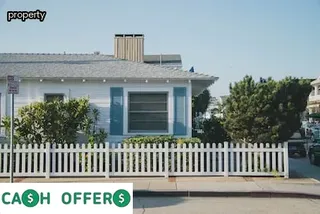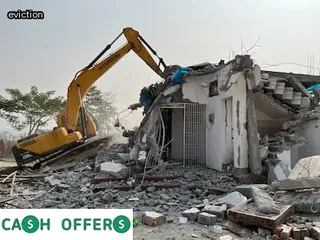When a tenant abandons a rental property, the landlord is left with the task of understanding both their legal rights and responsibilities. It is important to be aware of the potential impact to the landlord’s business if they don’t adequately address this issue.
Georgia law allows landlords to dispose of abandoned property within a reasonable amount of time, but there are also stipulations that must be followed in order for any action taken by the landlord to be legally permissible. Furthermore, landlords should understand that there may be tax implications associated with disposing of tenant items, which can present an additional challenge.
As such, it is essential for Georgia landlords to become familiar with all relevant laws and regulations so as to ensure that they are fully compliant when dealing with abandoned tenant property.

Creating effective tenancy agreements is essential for landlords in Georgia to protect themselves from the potential of abandonment. A well-crafted agreement should include details such as how long a tenant can leave items behind after vacating the property, and who is responsible for the cost of storing any left-behind personal belongings.
Landlords should also ensure their lease specifies when and how a tenant must give notice to vacate, as well as any necessary requirements for providing proof of residence. Additionally, it is important to include a clause that stipulates a tenant is liable for any damage or unpaid rent if they abandon the property without proper notice.
By including these key points in the tenancy agreement, landlords can be better prepared to prevent abandonment and minimize their risk of financial loss.
When a tenant abandons their property in Georgia, it is important for landlords to understand what their expectations should be for disposing of the items left behind. Landlords should always have an agreement with tenants that outlines their responsibility for the disposal of abandoned property, enabling them to reclaim any costs associated with its removal.
Additionally, Georgia law requires landlords to give tenants at least seven days’ notice before disposing of personal property left behind. Landlords should also keep in mind that certain items such as food, clothing, and furniture may need to be donated or auctioned off instead of discarded.
It is equally essential for landlords to document all activities related to disposing of tenant property, including photographs and written inventories of the items removed from the premises. Doing so can help protect both parties against potential claims or disputes over how tenant property was handled after abandonment occurred.

When tenants move out, landlords in Georgia may be left with unwanted personal belongings that the tenant has left behind. It's important for landlords to understand their rights and responsibilities when it comes to managing these items, as well as the best way to handle them.
There are several laws in place that govern how a landlord must dispose of abandoned property. Landlords must make an effort to contact the tenant and provide them with notice before disposing of any items on the premises.
They should also properly store any property until it is reclaimed or disposed of. If a tenant does not claim the belongings within a certain period of time, the landlord may be able to sell them at an auction or donate them to charity instead of keeping them if they choose not to keep them.
It's important for landlords in Georgia to stay informed about their rights and responsibilities when managing tenant property so they can remain compliant with all relevant laws and regulations.
Georgia landlords should make sure they stay up-to-date on the laws and regulations regarding tenant abandoned property. They need to understand their liability and rights when handling possessions left behind after a tenant moves out, taking necessary precautions to maintain compliance with state law.
It is important for Georgia landlords to know when they can take possession of the tenant abandoned property and what steps they must take before disposing of it. Landlords should also be aware of the potential liabilities involved in selling or transferring any belongings left behind by a former tenant and should consult an attorney if necessary.
Additionally, landlords should document any actions taken prior to disposing of tenant abandoned property, as this could help minimize future legal issues or disputes with former tenants. Taking these steps will help ensure that Georgia landlords are properly navigating abandonment and protecting their business from potential liability.

When examining a rental property, landlords in Georgia must assess the value of any tenant belongings left behind. It is important for them to understand the law and their rights when it comes to disposing of the items.
Depending on the nature of the goods, landlords should consider factors such as depreciation, condition of the item, and potential market value when evaluating abandoned items. In some cases, landlords may be able to sell or donate tenant left behind items to recoup costs associated with cleaning up a vacated unit.
However, they should also be aware that they may not keep any proceeds from these sales. Landlords must be prepared to provide proof of ownership and abide by specific regulations when handling abandoned goods.
Additionally, if there are hazardous materials or perishable food items present upon vacating a premises, appropriate disposal steps must be taken immediately before further damages occur or health risks are posed. Ultimately, landlords need to familiarize themselves with the laws surrounding tenant abandonment in order to protect themselves and their rental property investments.
It is important for Georgia landlords to have strategies in place for safely and legally removing a former tenant's possessions. Landlords should make sure they are aware of all the laws and regulations that are in place regarding abandoned property.
They should also be aware of any tenant rights concerning the retention of their personal property, as well as any rules regarding notice and disposal of items. In some cases, tenants may need to give written permission before their possessions can be removed from the property.
If a landlord suspects that items left behind are worth more than a certain dollar amount, they should contact the police or other law enforcement agency for assistance in removal. Finally, it is important that landlords document every step taken in relation to the removal of abandoned property, including taking pictures and maintaining detailed notes about everything that was done.
This will help protect them against any legal action taken by the former tenant.

When a tenant leaves behind items after vacating a property, it is important for landlords to understand what their rights and responsibilities are in terms of determining the appropriate action. Georgia law states that a landlord must either dispose of the items or store them for up to thirty days.
If the property is valuable enough, the landlord may keep it; however, they must also make reasonable attempts to contact the tenant and inform them that their items have been retained. The former tenant will then have an additional thirty days before those items are considered abandoned.
To help with identifying valuable items, landlords should conduct regular inspections of their rental units and document any tenant belongings they discover during these visits. This will create an inventory that can be used as evidence in regards to what actions should be taken with any forgotten items.
Additionally, landlords should also take pictures of any unclaimed property they find and keep these photos on record so that they can prove their efforts in trying to contact the former tenant before ultimately disposing of or retaining the item(s).
When it comes to navigating abandonment, it is important for Georgia landlords to understand the local laws concerning tenant property left behind. Under Georgia law, a landlord must treat abandoned property with the same care and diligence as if it were their own.
Landlords are responsible for safely storing the property and should make an effort to contact the tenant before disposing of any items. If a tenant has not been found within 30 days of vacating the premises, landlords may be able to sell or donate any abandoned personal items in order to cover any unpaid rent or security deposits.
Additionally, landlords should seek legal advice before taking possession of any valuables left behind by tenants, such as cash or jewelry. Finally, landlords should be aware that they may have limited access to abandoned vehicles and will need to follow certain protocols in order to legally remove them from their property.
Understanding these laws is key for Georgia landlords looking to navigate abandonment and ensure compliance with local regulations.

As a landlord in Georgia, you may have encountered the challenge of dealing with tenant property left behind. It can be difficult to know what to do if this happens, but there are resources available that can help you navigate these types of situations.
In order to resolve any issues related to property left behind by a former tenant, it's important to be familiar with pertinent regulations and laws. For instance, you should know the statute of limitations for filing an action against the tenant for disposal or storage costs.
Additionally, you will want to be aware of your rights as a landlord regarding abandoned property and how local ordinances may affect your decisions on how to dispose of it. Knowing the specifics of applicable state and local laws can help ensure that you don't run into any legal trouble as a result of disposing of the abandoned items.
Furthermore, connecting with other landlords in your area may provide valuable insight into dealing with this type of situation. They may have experienced similar challenges and offer advice on how best to handle them.
Utilizing existing resources such as these can help make it easier for landlords in Georgia to navigate abandonment issues surrounding tenant property left behind.
Georgia landlords have a responsibility to manage tenant abandonment in a manner that is respectful of the tenants’ rights and allows for the recoupment of costs related to the tenant’s property left behind. Fortunately, there are several strategies available to landlords for recovering costs associated with abandoned items.
First, Georgia landlords should review the rental agreement and any state laws that apply to determine legal obligations related to such tenancy. Additionally, landlords should document any property left behind by the former tenant and make an attempt to notify them of their obligation to remove their personal things from the premises.
If they fail to do so, landlords can collect any unpaid rent or fees owed by taking possession of these items and selling them through an authorized lien sale. Furthermore, Georgia law permits landlords to charge tenants for storage of their belongings if they remain onsite longer than permitted by law.
Lastly, Georgia Landlords should consider working with a lawyer or other professional who can advise them on how best to handle tenant abandoned property in a manner that protects their interests while respecting those of the former tenant.

For Georgia landlords dealing with tenant property left behind, it is important to develop an organized system for documenting and storing records related to abandoned property. Keeping accurate records of the condition of the premises before, during, and after the abandonment is essential for any landlord to protect themselves from potential future legal actions.
Taking photographs of the premises and storing them safely can provide evidence in the event of a tenant dispute. Additionally, it is important to take detailed notes regarding all interactions with a tenant so that there is a record should the tenant dispute or contest any action taken by the landlord.
Lastly, all documents pertaining to abandoned property should be kept in a secure place and securely stored so that they can easily be accessed when needed. By developing an organized system of documentation and storage, landlords in Georgia can better protect themselves when dealing with tenant property left behind.
When dealing with an abandonment issue, it is important for Georgia landlords to take the necessary steps to prepare their property for a new renter. As part of this process, landlords must understand the laws surrounding tenant property left behind and how to properly manage it.
First off, it is essential that all abandoned items are handled in accordance with Georgia's landlord-tenant laws. This includes properly disposing of any personal items that have been left behind, such as furniture and clothing.
Landlords should also be aware of their obligations when it comes to storing or disposing of abandoned tenant property. Additionally, landlords should consider implementing a tenant screening process prior to renting out their property again, ensuring that all prospective tenants meet the required criteria.
Finally, landlords should consult with an experienced legal professional before taking any action related to abandoned tenant property in order to ensure they are following all applicable state and local laws.

As a Georgia landlord, it is important to understand the procedures for disposing of unclaimed items or damage-causing items left behind by tenants in your rental unit. Georgia law requires landlords to store the tenant’s property for at least 30 days before disposing of it.
During this time, the tenant has an opportunity to reclaim their abandoned belongings. If after 30 days the tenant has not contacted you to claim their property, then you are legally allowed to dispose of it.
It is important to keep documentation of all attempts made to contact the tenant regarding their property, as well as proof that the item was disposed in accordance with state law. In some cases, you may be able to sell the abandoned items and apply any proceeds towards unpaid rent or fees associated with removing them from the rental unit.
However, if the items are damaged or otherwise deemed unusable, they must be discarded properly in accordance with local guidelines. Furthermore, any hazardous materials must be disposed of according to state law.
As a responsible Georgia landlord it is essential that you understand and follow these procedures when dealing with unclaimed or damage causing items left behind by tenants in your rental unit.
When a tenant leaves behind personal property after vacating a rental unit, Georgia landlords have the right to negotiate with former renters over what should be done with it. This can be tricky, as the situation is often fraught with emotion and confusion over ownership rights.
Landlords must understand that they are legally obligated to store tenant belongings in a secure location until an agreement is made between them and the former renter. It's important to first contact the former tenant and try to reach an agreement about how to handle the items left behind.
If this fails, there are several other options, such as working through a mediator or filing for abandonment in court. Ultimately, Georgia landlords should carefully consider all their options when navigating abandonment of tenant property left behind in order to protect their rights and minimize potential legal liabilities.

When a tenant abandons their property in a Georgia rental unit, the landlord is legally obligated to take specific steps to protect their interests. If a former renter violates the lease agreement and fails to follow the abandonment procedures outlined in the contract, then legal action may be necessary.
Landlords should take proactive steps to document the condition of the abandoned property, including photographic evidence if possible. This can help establish that reasonable attempts were made to contact the tenant and provide them with an opportunity to retrieve their possessions.
If necessary, landlords should consider filing for breach of contract or other legal remedies against tenants who fail to fulfill their obligations under the lease agreement regarding abandonment of property.
Navigating abandonment can be a complicated process for Georgia landlords, and one of the most difficult aspects is knowing how to handle abandoned property. Professional organizations such as the Georgia Apartment Association (GAA) and the National Apartment Association (NAA) can provide guidance on this issue.
Through these organizations, landlords have access to resources that can help them understand applicable laws and regulations regarding abandoned property. These organizations also typically offer seminars, webinars, and other educational opportunities on abandoned tenant property.
Additionally, they provide legal advice and assistance in case of disputes or if landlords need help understanding their rights and responsibilities when it comes to tenant property left behind. Joining these professional organizations is a great way for landlords to access valuable information about navigating abandonment in Georgia so they are better equipped to make informed decisions about tenant property left behind.

It's important for Georgia landlords to educate current and future tenants on the proper protocols for leaving a home upon moving out. This should include explaining the state laws on abandoned property, as well as discussing how tenants should prepare their residence prior to leaving.
Landlords can provide clear directions on what items must be removed from the premises, such as furniture and belongings, and what items may remain, like appliances that are part of the rental agreement. It's also a good idea to have renters document any damages or requests for repairs that need to be addressed before they move out.
By setting clear expectations up front and discussing the consequences of non-compliance, landlords can ensure that tenants know their rights and responsibilities when it comes to navigating abandonment issues in Georgia.
When it comes to navigating the issue of abandonment, Georgia landlords have an important responsibility to define reasonable time frames for dealing with unwanted personal belongings left behind by tenants. This is critical in order to ensure that the rental unit remains safe and secure during and after a tenant vacates.
Landlords must take into consideration their state’s laws and regulations when determining how long they can keep items before disposing of them. Generally, it is recommended that landlords give former tenants a minimum of thirty days notice before removing any property from the rental unit.
During this time frame, landlords should also provide clear details about how and where the tenant can reclaim their belongings. It is important for landlords to be aware of any applicable deadlines or regulations that may affect their ability to remove property from the rental unit.
Knowing these laws will help Georgia landlords navigate abandonment issues such as unwanted personal belongings left behind in their rental units more effectively and confidently.

As a Georgia landlord, it can be difficult to navigate the potential issue of abandoned tenant property left behind after they have vacated the premises. In order to alleviate problems that may arise from dealing with unwanted items, there are several storage solutions available to consider.
If you come across furniture or other large items that cannot fit within your rental unit, investigate nearby storage facilities who can provide a secure space for the items to be stored until they can be removed or disposed of in a proper manner. If you find smaller items such as clothes, it may be beneficial to purchase plastic bins and store them in an area of your rental unit and out of sight.
Doing so will help prevent clutter while also making sure that any personal belongings are respected by not being thrown away immediately. Additionally, these bins can easily be moved from one location to another if needed.
As a landlord, considering these storage solutions ahead of time will help make any situation with abandoned tenant property less stressful and more manageable.
In Georgia, a tenant's property is considered abandoned if they have been gone for more than 30 days. According to Georgia state law, the landlord must take certain steps before disposing of any tenant-owned property left behind.
The landlord must give the tenant written notice that the property has been deemed abandoned and provide them with a period of at least 10 days to reclaim it. If the tenant does not show up within this 10 day period, the landlord may dispose of it in any manner they choose.
If a tenant is evicted from the premises, however, the landlord may consider all remaining items as abandoned without waiting for this 30 day period. It is important for landlords in Georgia to understand their rights and responsibilities when it comes to dealing with abandoned tenant property.

In Georgia, landlords are limited in what they can do with tenant property left behind. A landlord cannot dispose of the tenant's belongings unless a court order is obtained to do so, and even then, the items must be stored for at least 10 days before they can be disposed of.
Additionally, a landlord cannot charge tenants for the storage or disposal of any property. Furthermore, a landlord is prohibited from entering into a lease agreement that waives certain rights related to abandoned tenant property.
Finally, it is illegal for a landlord to make any attempt to sell or otherwise transfer the tenant’s property without written authorization from the tenant. Knowing these restrictions can help ensure that landlords are properly navigating abandonment and complying with state laws in Georgia.
In Georgia, a landlord must provide a tenant with a 7 day notice to vacate if they have abandoned their property in the rental unit.
This notice serves as an official warning that the tenant has seven days to remove all of their belongings from the rental unit or risk having them disposed of by the landlord.
The 7 day notice to vacate must include information about how and when the tenant can retrieve any items left behind, as well as details about what happens if they fail to do so within the allotted time.
It is important for landlords in Georgia to understand and follow all legal requirements related to issuing a 7 day notice to vacate in order to protect themselves from potential liability.
In Georgia, a 3 day notice to vacate is a document that informs a tenant that they must vacate the premises within three days. It also serves as an official notification of the landlord's intent to reclaim possession of the unit and their right to terminate the lease.
The landlord must provide reasonable grounds for issuing a 3 day notice to vacate, such as failure to pay rent or other lease violations. A tenant may challenge the eviction by appearing in court and presenting evidence that refutes the landlord's claim.
If a tenant does not vacate within three days of receiving the notice, the landlord can file an unlawful detainer action in court and seek possession of the property. It is important for landlords to understand how to properly navigate abandonment when dealing with tenant property left behind after issuing a 3 day notice to vacate in Georgia.
A Writ of Possession is an important document for Georgia landlords to understand when it comes to navigating abandonment and tenant property left behind. It is a legal document issued by the court system that allows a landlord to take possession of personal property left behind by tenants.
The writ must be served on the tenants, along with any other necessary notices, before the landlord can take possession of the property. This document grants the landlord authorization to enter the premises and remove any remaining possessions without further court action.
Once in possession, it is up to the landlord to determine what to do with the tenant's belongings. This could include storage, sale, or disposal depending on state laws as well as local municipality regulations.
Following state law guidelines can help ensure that landlords follow proper procedures when dealing with tenant abandonment and their belongings.
A: When a tenant abandons property in Georgia, it is the duty of the Lessor to mitigate damages that may be incurred as a result. This includes attempting to re-rent the premises and/or collecting any remaining rent due under the terms of the lease agreement.
A: When a tenant abandons property, Georgia landlords must navigate abandonment carefully in order to understand their rights. Landlords should be aware that tenants have the right to reclaim their abandoned property for up to 12 months after the lease has ended; meanwhile, the landlord is responsible for securing and storing the abandoned property until it is reclaimed or disposed of.
A: According to Georgia law, landlords must follow the legal eviction process in order to deal with a tenant who has abandoned their property. Landlords must first notify the tenant via certified mail that they have abandoned their property and that they will be evicted if they do not return within seven days. If the tenant does not return after those seven days, then the landlord may take possession of any remaining personal belongings or fixtures and terminate any associated contracts such as internet or email services.